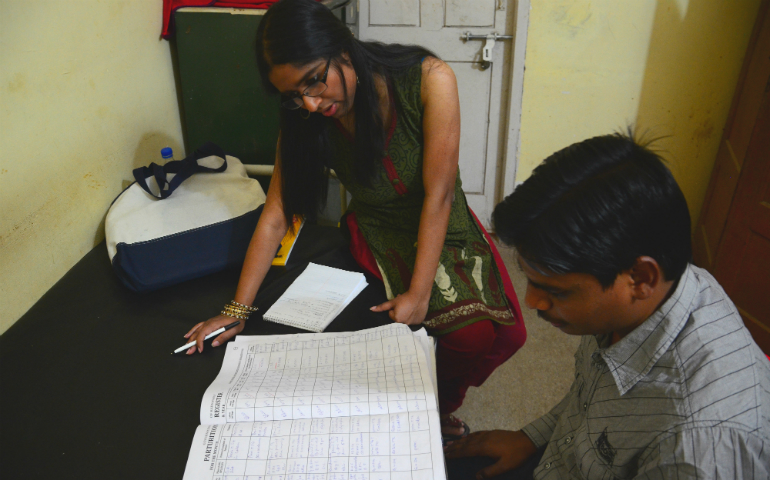Observing that maternal mortality rates in Karnataka were higher than those in its neighboring states, IPH wanted to understand the causes and to explore any systemic failures in the public hospital system that impacted quality of maternal care. Such analysis could inform a brief for the Karnataka state government, ultimately leading to policy improvements.
GlobalHealth Lab students analyzed the decision-making and referral process of obstetricians and nurses and examined maternal patients’ health-seeking behavior. Paying special attention to failures in the referral and care system, the team focused on hospitals at the sub-district (“taluk”) level within the Tumkur district. Taluk hospitals sit between the lowest-level institutional facility, called primary health centers or PHCs, and higher-level district hospitals. In the course of visiting eight different sites, the team interviewed 102 patients, 16 doctors, 8 nurses, 6 administrators, and several IPH experts, in addition to completing some 80 hours of observation.
Drawing on this research, the student team formulated both short- and long-term recommendations. In the near term, taluks required more staffing, standardized roles and responsibilities, and better integrated protocols and checklists for maternal care. They identified a particular need for standardized referral structures across hospital levels. Long-term challenges included ensuring that PHC providers have the right capabilities and resources to conduct deliveries and rebranding PHCs through patient education with the goal of decentralizing deliveries to reduce crowding at taluk facilities.
The recommendations could not only improve hospital operations but may also help others to better rationalize services to improve patient care for marginalized populations throughout India. The process has already begun, with students training 34 taluk officers in healthcare management during their stay.

